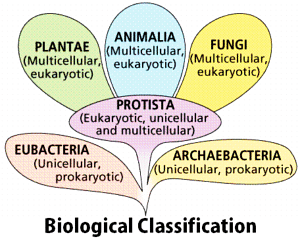Question:
During conjugation in Paramecium
During conjugation in Paramecium
Updated On: Jul 28, 2022
- out of the four micronuclei formed, three nuclei degenerate
- out of the twelve macronuclei formed, four nuclei degenerate
- zygote nucleus undergoes ten successive divisions in each conjugant
- out of the sixteen nuclei formed from zygote, $12$ become macronuclei and 4 micronuclei
Hide Solution
Verified By Collegedunia
The Correct Option is A
Solution and Explanation
In Paramecium, micronucleus participates in conjugation (sexual exchange). During conjugation, the diploid micronucleus of each conjugant grows in size and then divides by meiosis producing $4$ haploid daughter micronuclei out of which $3$ degenerate and disappear in each conjugant while the remaining one divides by mitosis forming $2$ unequal pronuclei or gamete nuclei-migratory gamete nucleus (smaller) and stationary gamete nucleus (larger). The migratory gamete nucleus of one conjugant passes through the protoplasmic bridge into the other and fuses with the stationary nucleus forming diploid zygote nucleus (synkaryon). In each exconjugant, the zygote nucleus undergoes $3$ successive mitotic divisions producing $8$ nuclei, of which $4$ become macronuclei and $4$ micronuclei. Out of $4$ micronuclei, $3$ degenerate and $1$ remains functional.
Was this answer helpful?
0
0
Top Questions on biological classification
- Which of the following microorganisms is used in the production of curd from milk?
- MHT CET - 2025
- Biology
- biological classification
- In a DNA molecule, which of the following base-pairings is correct?
- MHT CET - 2025
- Biology
- biological classification
- Which is not a prime element?
- MHT CET - 2025
- Biology
- biological classification
- Study the following and choose the incorrect combinations:
I. Phylum: Porifera, Special cells: Lasso cells, Example: Spongilla
II. Phylum: Cnidaria, Special cells: Stinging cells, Example: Hydra
III. Phylum: Ctenophora, Special cells: Choanocytes, Example: Pleurobrachia
IV. Phylum: Platyhelminthes, Special cells: Flame cells, Example: Fasciola- TS EAMCET - 2025
- Zoology
- biological classification
- Study the following and choose the correct combinations:

- TS EAMCET - 2025
- Zoology
- biological classification
View More Questions
Questions Asked in AFMC exam
- 1200 ml of air remaining in lungs even after forceful expiration is
- AFMC - 2012
- Exchange Of Gases
- A dicot plant in which scattered vascular bundles are present in stem is
- AFMC - 2012
- Anatomy of Flowering Plants
- Which plays an important role in the dispersal of spores in Funaria?
- AFMC - 2012
- Plant Kingdom
- Sexual reproduction in eubacteria takes place by
- AFMC - 2012
- Kingdom Monera
- Which of the following acid is also a vitamin?
- AFMC - 2012
- Digestion and absorption
View More Questions
Concepts Used:
Biological Classification
The process of grouping living organisms into categories is called biological classification. The most modern 5-kingdom classification was put ahead by an eminent scientist R.H.Whittaker. The five-kingdom classification is based on the criteria like cell structure, mode of nutrition, body form, and reproduction. One of the most important characteristics of this system is that it follows the evolutionary sequence of living organisms. The organisms are classified into distinct taxa or levels like Kingdom, Phylum, Division, Class, Order, Family, Genus, and Species. The 5 kingdoms are as follows:
